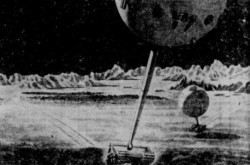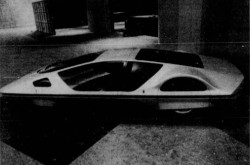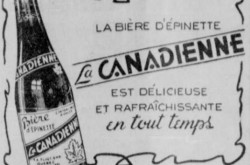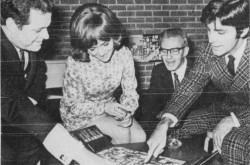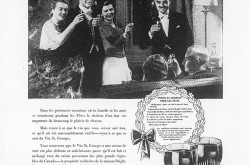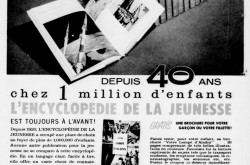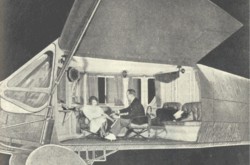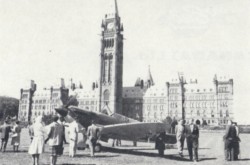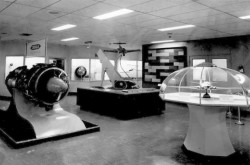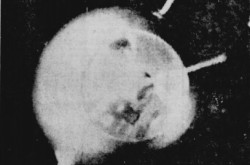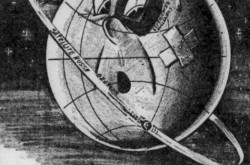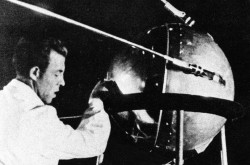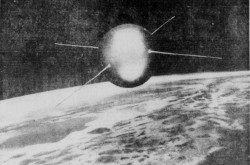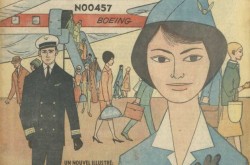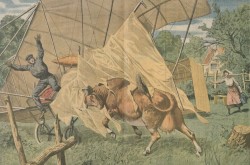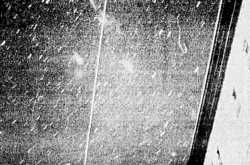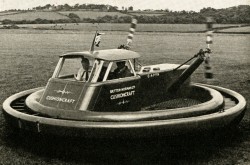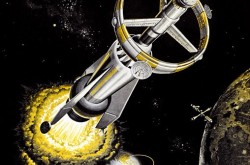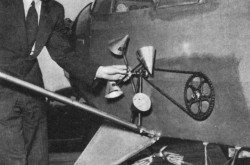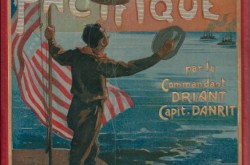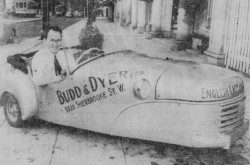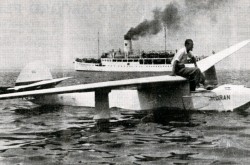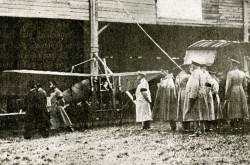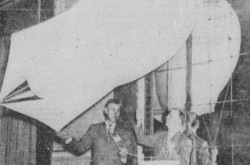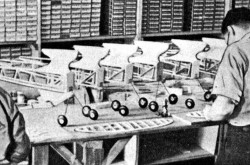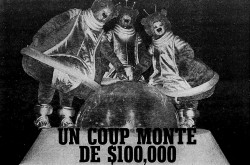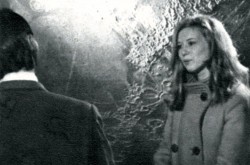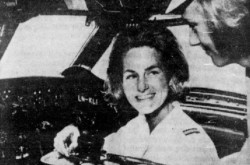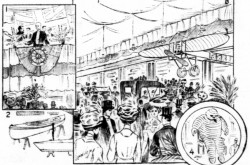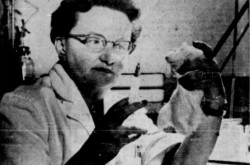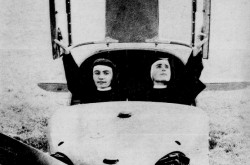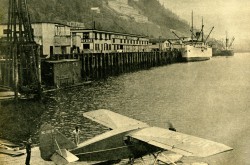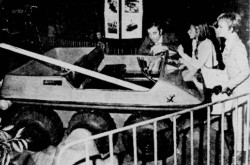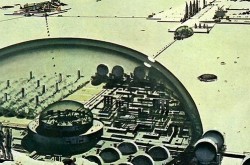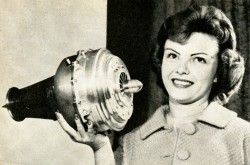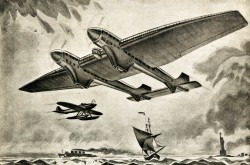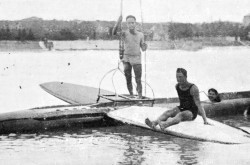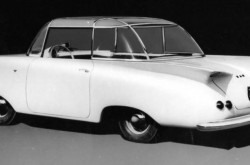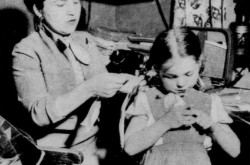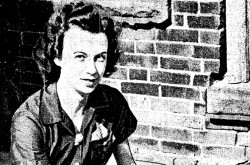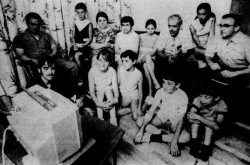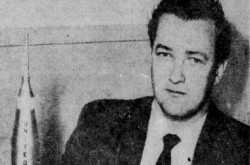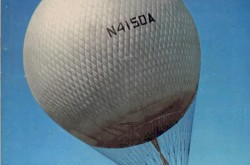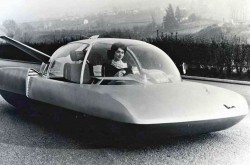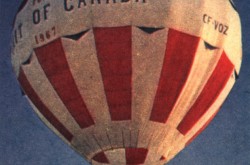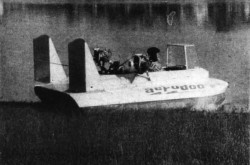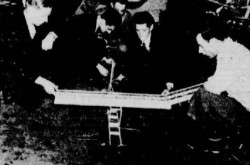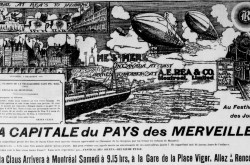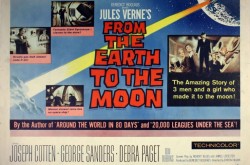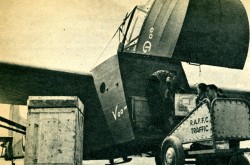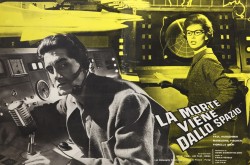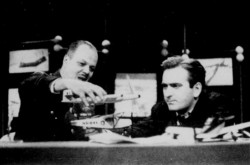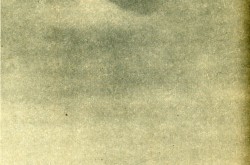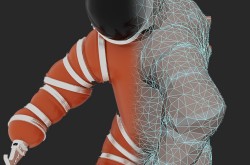A thrilling, or slightly too abstract, television series, set against a Cold War background: Kosmos 2001

Jó naput / hello, my reading friend. And yes, you are quite right in saying that the photograph at the beginning of this article did not appear in La semaine à Radio-Canada¸ a weekly published in Montréal, Québec, in October 1959 or 1969. I appealed to it because it allowed me to talk about a Québec television series aimed at a young audience, one of the first televised science fiction series in Québec and Canada in fact, whose premiere took place in October 1959, 60 years ago. Produced by the Société Radio-Canada, the French-language Canadian state radio and television broadcaster, Kosmos 2001 had 26 episodes of approximately 30 minutes. The last of these went on air in April 1960.
This justificatory introduction being behind us, let us really get to the heart of the matter.
I will venture to say (type?) that the action of Kosmos 2001 was supposed to take place in 2001. Two planets faced each other. In the right-hand corner, the Earth (Yes, yes!), a world where the people lived in peace thanks to a benevolent global government which wanted to raise the standard of living of everyone. In the left-hand corner, Marshall (Boo! Boo!), a world where the people lived under the domination of a Phalanx of conformity that wished to invade the Earth.
The Marshallians, who looked like Earthlings like peas in a pod, had an almost absolute and unstoppable weapon: invisible missiles capable of striking our planet. A trio of earthly researchers was desperately trying to unlock the secret of this weapon. A group of Marshallian soldiers kidnapped them before they succeeded. The Earthlings were imprisoned on Marshall. Was the fate of the Earth sealed? (Dramatic and distressing music.) Would peace, freedom and French fries, sorry, disappear from the Milky Way? That’s what we’ll see next week. Maybe. What is it, my reading friend, you cannot wait? The suspense is too great? Very well.
Know then that there were good people on Marshall. Acting at the risk of their lives, the secretary of an important person (Minister? Prime minister?? President???) and a scientist helped the 3 Earthlings to escape. The latter seized a Marshallian spacecraft and hightailed it out of town. They went far, elsewhere – if I may paraphrase the few words that introduced every episode of the French language version of the American television drama series Run for your life, originally broadcasted between September 1965 and March 1968. And yes, I must admit I remember seeing some episodes of this classic television series, in their French version, but back to our sheep, sorry, Earthlings.
Would you believe that some notes, many in fact, of the musical theme of this series came to my mind, after more than 50 years, as I wrote the draft of this text?
Our 3 Earthlings, say I, finally arrived on a planet unknown to them. There they met strange beings with whom they communicated so closely, from soul to soul if I may say so, that they merged with them, and ... I don’t know more. Believe it or not, the story of the adventures of the lost in space Earthlings has been lost too.
I know, I know, it’s horribly frustrating but there’s virtually no information on Kosmos 2001 on the web, sorry, Web – a source of information that, in this case, was / is 1 kilometre wide and 10 centimetres deep. In imperial measurements, may I suggest 1 mile in width and 6 inches in depth? (Hello, Mister H.) Good. Let’s move on.
And yes, my reading friend with incomparable television knowledge, Lost in Space was the title of an American television science fiction series also broadcasted, by a strange coincidence, between September 1965 and March 1968 – and of an eponymous film, released in April 1998, which was not particularly successful. And yes, I must admit to remember having seen some episodes of the television series. Would you believe that several notes of its musical theme came back to me after more than 50 years? Memory is a strange faculty, is it not? Anyway, let’s move on.
I immediately confess to having no memory of Kosmos 2001, and this even if this series went on air again between April and October 1964. But I digress. Sorry.
The scenario for Kosmos 2001 was interesting in that it did not originate from the fiery brain of a pure wool Quebecker, in other words a descendant of the people living in New France at the time of the British invasion of 1759. This person was named Elisabeth “Elsa” Vitez, born Vitéz Elisabeta (?).
A professional filmmaker in her native Hungary, Vitez was imprisoned in 1952, for reasons unknown to yours truly, by the communist government of this satellite of the Union of Soviet Socialist Republics (USSR). Friends, however, manage to secure her release. Apparently unable to find work in the film industry, Vitez had to make a living in a canning factory.
In October and November 1956, Hungary was shaken by a popular revolt, the Hungarian Revolution of 1956 or Hungarian Uprising, quickly quelled in blood (more than 2 500 deaths followed by more than 13 000 imprisonments and hundreds of executions). Approximately 200 000 Hungarians fled, including Vitez. She immigrated to the United States where she managed to find a job of administrative nature, in New York City, New York, in the film industry. In fact, Vitez worked for Metro-Goldwyn-Mayer Studios Incorporated, a major film factory with which she had collaborated in her home country. Vitez, however, was not long in leaving this job, and the United States, to join her son, established in Montréal for some time.
It should be noted that one of the main cities mentioned in Kosmos 2001 was called Montyork. Vitez wished to thank the 2 metropolises, MONTréal and New YORK City, which had welcomed her and given her hope.
As you will no doubt have guessed, my reading friend, Vitez used the political and social situation of the 1950s to create the scenario of Kosmos 2001. She was certainly not the only, or the first author of a science fiction work to use the political situation of her / his time.
One only need to think about Herbert George Wells’ The War of the Worlds, published in 1898. This British science fiction giant offered a profound and shocking commentary on the theory of evolution, the prejudices of the Victorian era and / or British capitalist imperialism. Wells’ novel placed his fellow citizens of the United Kingdom and Dominions in the position, pushed to the limit, yes, with which populations from Africa, America, Asia, Europe and Oceania (Kenya, Acadia, India, Ireland and Australia for example) invaded by English / British troops had long been faced with. This being said (typed?), the vast majority of critics and commentators of the time did not perceive, or refused to perceive, Wells’ commentary.
Let’s be brutal. Was / is the imperialism of Wells’ Martians simply an extreme form of the imperialism of the United Kingdom, and / or of the other colonising powers of the Belle Époque – a somewhat inappropriate expression in such a context? Let’s be more brutal. Weren’t / aren’t non-disabled, non-elderly, white, male, heterosexual, christian, anglophone and adult Canadians, British or Americans the Martians of their victims? Given that these people made / make up only a minor minority of the population (1 person in 4 or 5?), why did / do they hold so much power – a power they did / do not necessarily seem to want to share actually? Just sayin’.
Would you believe that the film version of The War of the Worlds, released in 1953, was the baby of a Hungarian, yes, Hungarian, American producer and director? George Pal, born Marczincsak György Pál, was mentioned in a November 2018 issue of our you know what. But back to our topic.
The world government of the Earth in Kosmos 2001 looked just like the one dreamt by Vitez. In turn, the Phalanx of conformity that oppressed the population of Marshall looked just like the communist regime with which she had to deal with in Hungary. Indeed, one wonders if the very name of this planet did not reflect the rank (marshal) arrogated, in 1943, by the monstrous ruler of the USSR for nearly a quarter century, Josif Vissarionovich Stalin, born Ioseb Jughashvili, mentioned in issues of our blog / bulletin thingee since February 2018.
According to a critic writing for a Montréal weekly, Le Petit Journal, Kosmos 2001’s screenplay was far more profound than those of the American science fiction works usually offered to young Quebeckers. He did not believe, however, that the shallowness of the main characters, entirely good or entirely evil, was problematic. The adolescent public, often quite Manichean, to whom the series was addressed did not always show a lot of psychological finesse.
This being said (typed?), the critic of the Montréal weekly wondered if the final scenario written by Vitez with the help of a colleague of the Société Radio-Canada was not so abstract that it evacuated the humanity of the main characters. Without this humanity, the critic feared that the young television viewers would not take interest in the adventures of characters that they could not really manage to love, or hate. The simplicity of the acting of the actresses and actors involved in Kosmos 2001 could prove useful in that respect, however. It was indeed light years away from the mannerism and grandiloquent compositions that affected too many late 1950s productions intended for an adolescent audience.
Yours truly would like to be able to tell you more about the reception given to Kosmos 2001 by the Québec public. The lack of information unfortunately makes this task almost impossible. I can nevertheless pontificate a little bit about someone involved in this television series.
If television series offered to Québec television viewers of all ages in the late 1950s usually included an array of characters of infinite whiteness, Kosmos 2001 was original by including a character played by a perfectly bilingual Quebecker of African and Portuguese origin. This being said (typed?), Percy Rodriguez, perhaps (?) born José Rodrigues, played a villain, and quite the villain: the president of planet Marshall. And yes, it was he that you saw in the photograph at the very beginning of this article.
Born in Montréal in June 1918, Rodriguez entered the job market as a teenager to help his mother and siblings, abandoned by their father. He became a boxer but was very interested in theatre. If Rodriguez proved very talented in this latter area, the fact was that he had great difficulty finding roles. He therefore had to occupy many functions, from toolmaker and machinist to doorman, and this, for at least a good decade. The masculine interpretation prize that Rodriguez won at the 1950 Dominion Drama Festival opened some doors for him, however
The role of President of the planet Marshall in Kosmos 2001 was actually among the first played by Rodriguez on television. His first experience in this field dated back to 1955. Interestingly, Rodriguez was among the actors involved in the first science fiction television series in Québec, Opération-Mystère, apparently broadcasted by the Société Radio-Canada between June 1957 and June 1959 and mentioned in a September 2018 issue of our blog / bulletin / thingee. Do you believe that yours truly should update his English and French Wikipedian biographies? Decision, decision ...
Speaking of decision, I envision the possibility of looking into the idea of writing an article on Opération-Mystère. Not wishing to wait until June 2027, I could offer myself this text as a Christmas present, but not in 2019.
Did you know that the director of Kosmos 2001, Roland Guay, was one of the directors of Opération-Mystère? And I’m digressing again. Sorry.
Rodriguez left Montréal, Québec and Canada before the mid-1960s. Established in the United States, he gradually carved a comfortable place in the artistic community of that country. Known for his rich, distinctive and deep voice, for his imposing stature, for his majestic, noble and powerful looks, and for the touch of gray in his hair, Rodriguez found roles in theatre, television and cinema. In fact, he was one of the few active Black actors in the 1960s who, to some extent, was able to overcome the stereotypes and racism pervasive in the United States.
Dare we say that the competent and human neurosurgeon played by Rodriguez, around 1968-69, in the hit television soap opera Peyton Place, was a turning point for the African American community, which had never seen one of its own occupy a white-collar job on the small screen?
A wacky idea comes to mind, and ... I wonder why my coworkers rush to the nearest exits. Anyway. A wacky idea comes to mind, say I. Would it not be interesting to create a temporary (traveling?) exhibition on medicine and doctors in televised works of fiction at the Canada Science and Technology Museum in Ottawa, Ontario – a sister / brother institution of the world famous Canada Aviation and Space Museum, also located in Ottawa? Just sayin’.
Let me mention in passing that Rodriguez was one of the many actors who played in an episode of the American cult television series Star Trek. He then played opposite another well-known Montréal actor, William “Bill” Shatner, a gentleman mentioned in November 2018, July 2019 and September 2019 issues of our blog / bulletin thingee. And yes, my reading friend who is passionate about television, Star Trek was mentioned there a few times since August 2017.
Would you believe that Rodriguez also participated in an episode of the American espionage television series The Man from U.N.C.L.E, mentioned in a May 2019 issue of our blog / bulletin / thingee? I include this detail in my peroration because I know how much you like this type of reminder. If I may be permitted to quote an expression of the great humanist that Bugs Bunny was / is, ain’t I a stinker? Sorry.
Rodriguez remained active in film and television until around 1987. This being said (typed, yes, typed, I was about to forget that.), he narrated movie trailers and television flash ads until around 2000. Some of his narrations of trailers, often very disturbing, like that of the English version of the classic Jaws, in 1975, went down in history.
Rodriguez left this world in September 2007, at the age of 89.
Viszlát / goodbye, and see you next week.


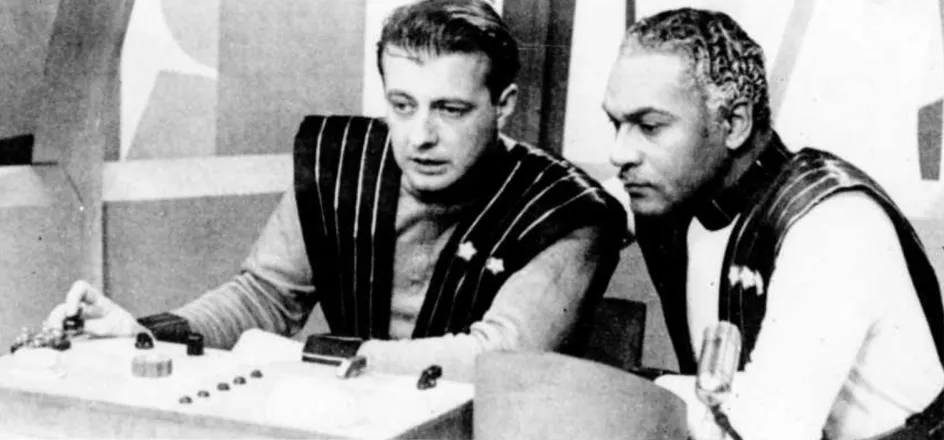












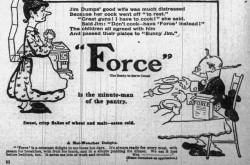
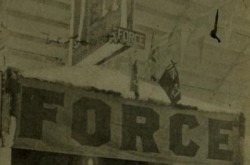
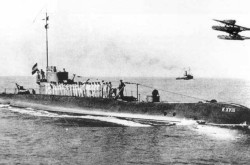
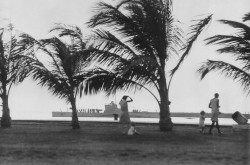
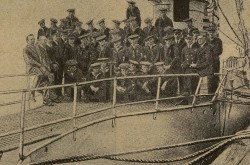
![A block of photographs showing some of the people involved in the bombing of beluga whales in the estuary and gulf of the St. Lawrence River. Anon., “La chasse aux marsouins [sic]. » Le Devoir, 15 August 1929, 6.](/sites/default/files/styles/thumbnail_7/public/2024-09/Le%20Devoir%2015%20aout%201929%20page%206.jpg?h=584f1d27&itok=TppdLItg)
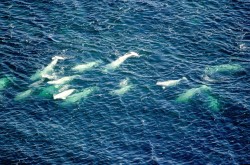
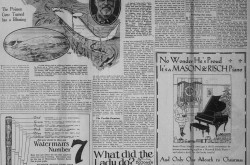
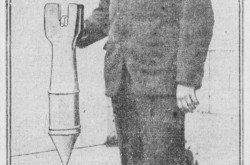
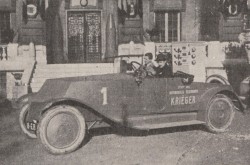
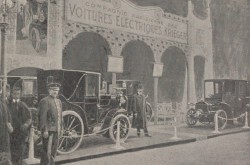
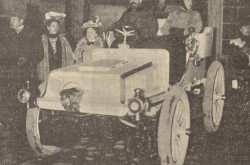



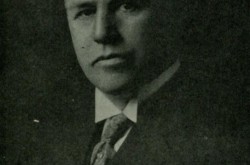
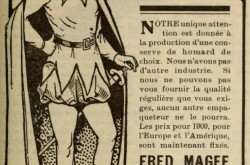
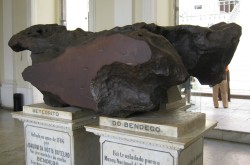
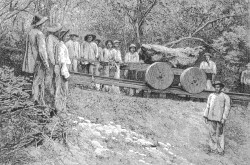


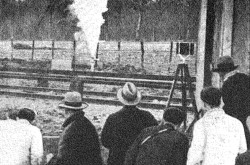
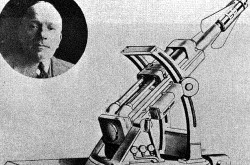
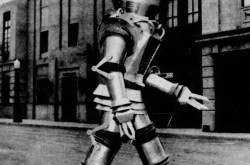

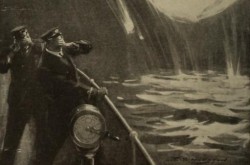
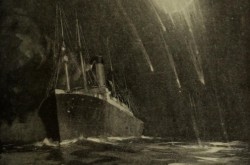
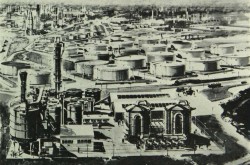
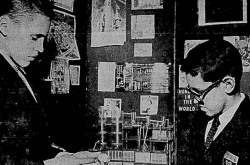


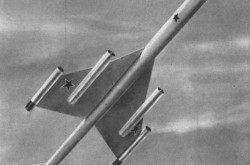
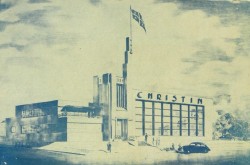
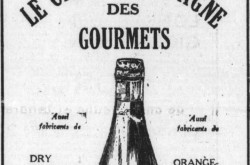
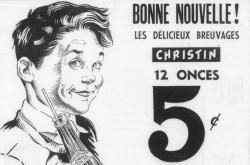
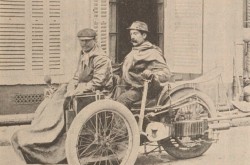
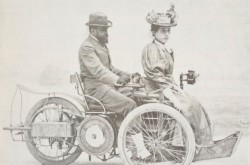
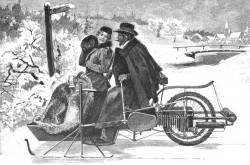

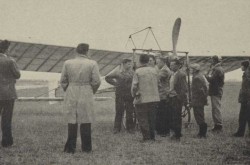
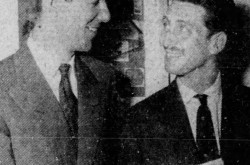

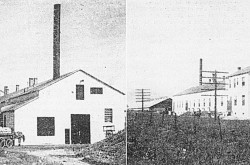
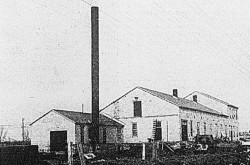
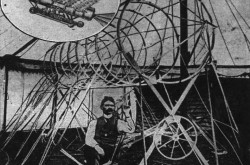
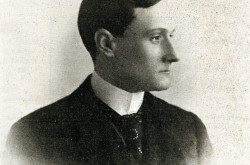
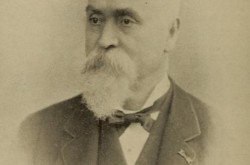
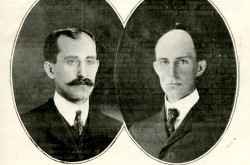
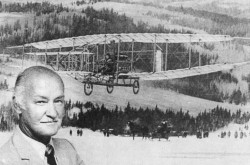
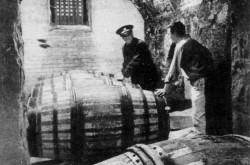
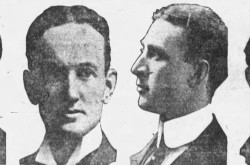
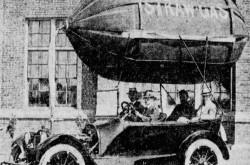
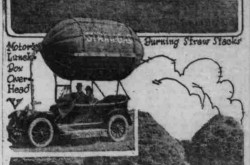
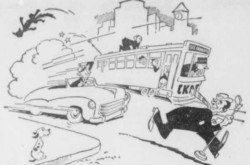

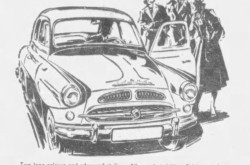
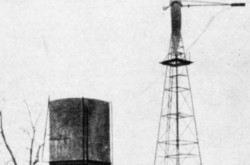
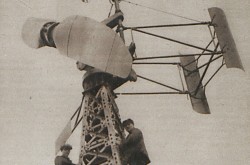


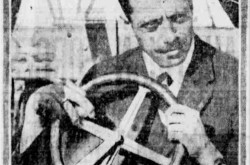

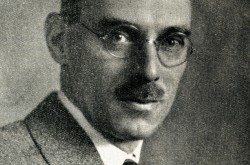
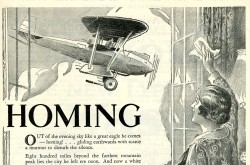


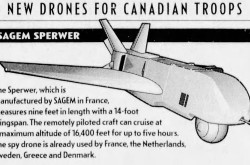
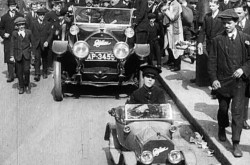
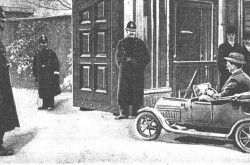
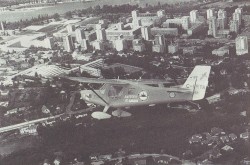
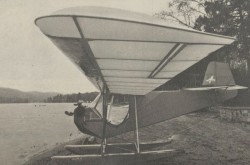
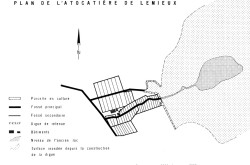
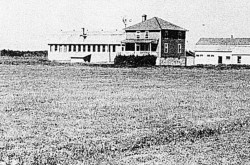

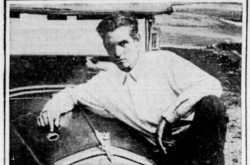
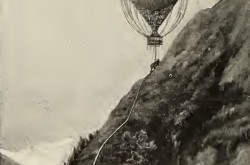

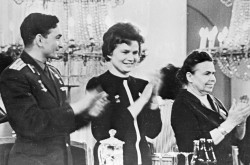
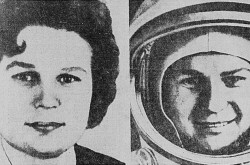

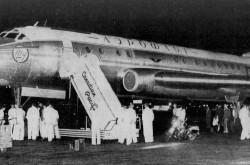

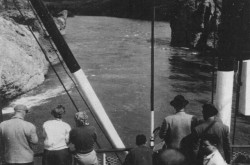
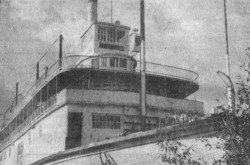
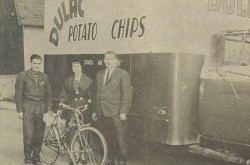
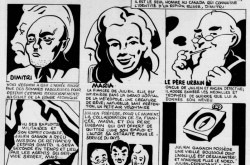
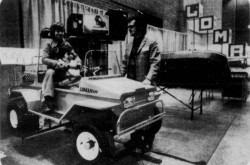

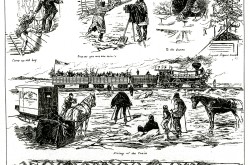
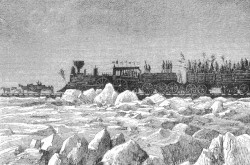
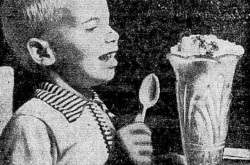
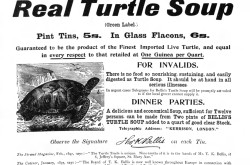
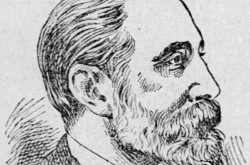

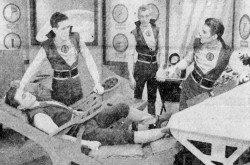
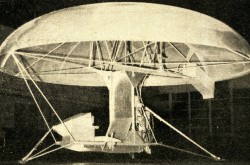
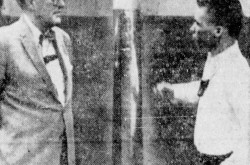
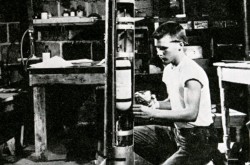

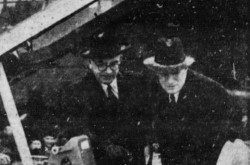
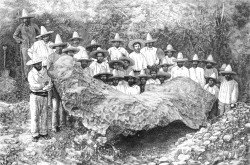

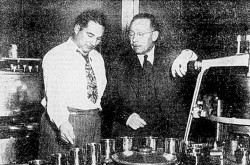


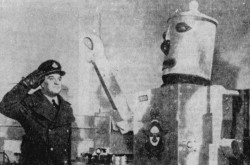
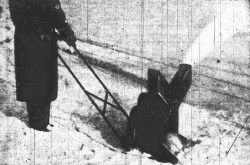




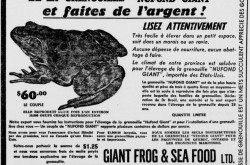
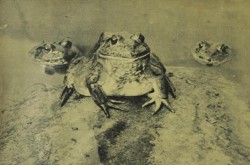
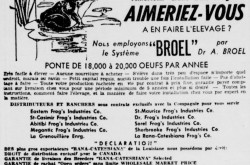
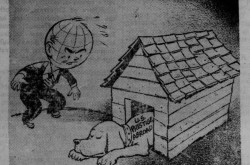
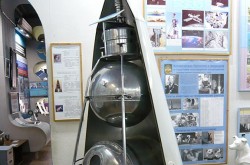
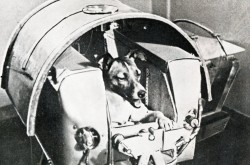



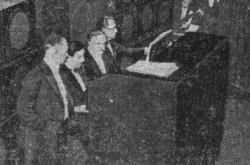
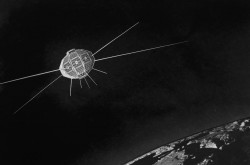
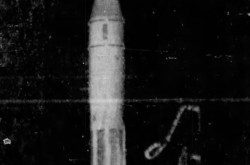
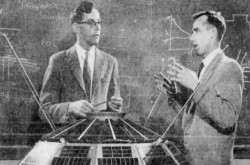
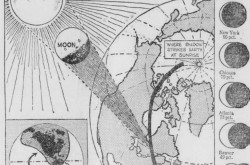
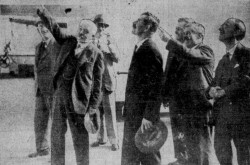
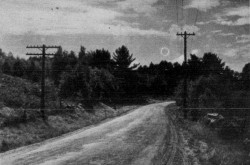

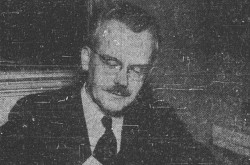
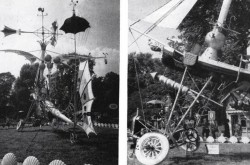

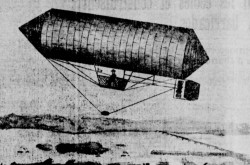
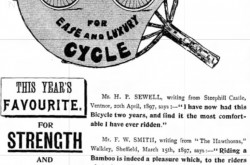
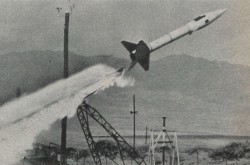
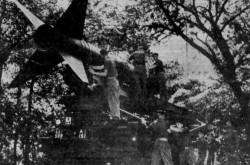
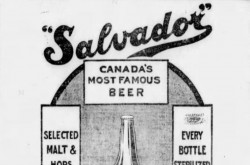
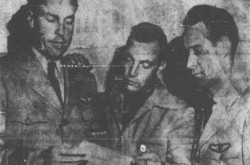
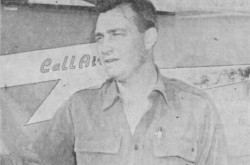
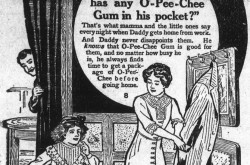
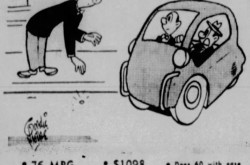
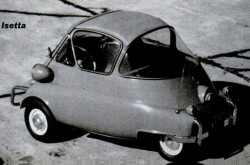
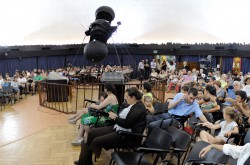
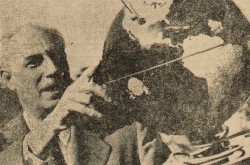

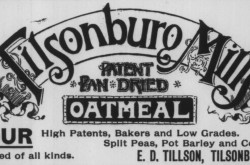

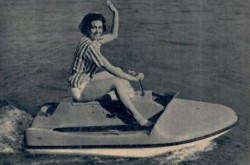

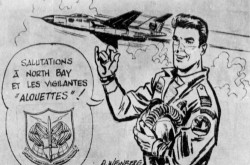
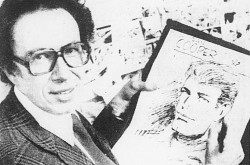


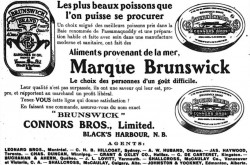
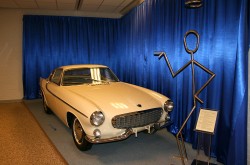
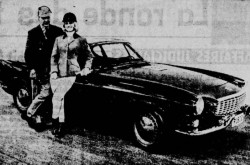
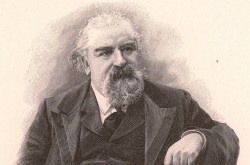
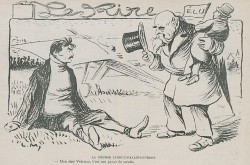
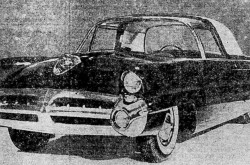


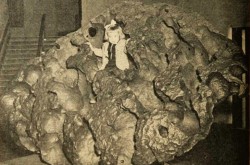
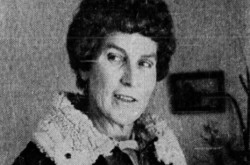
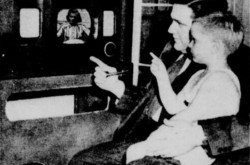
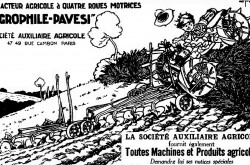

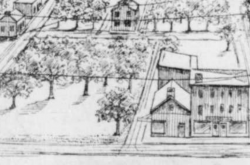

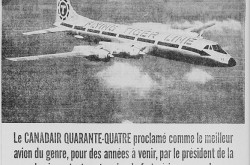


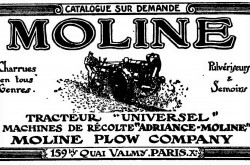



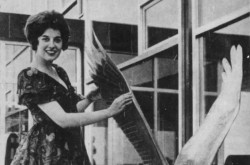
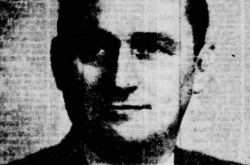
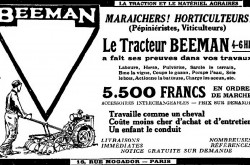
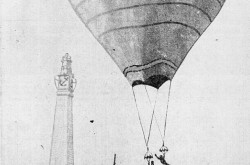
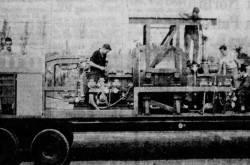
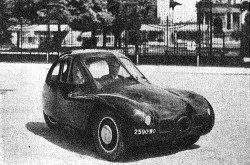




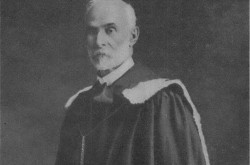
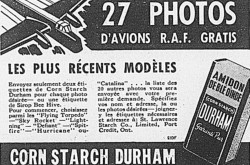
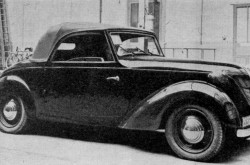

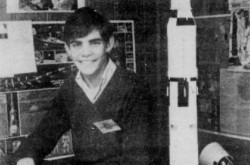

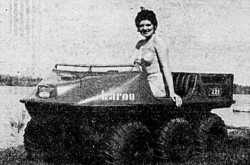
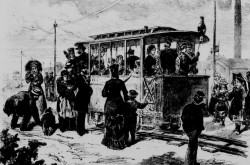
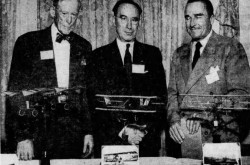



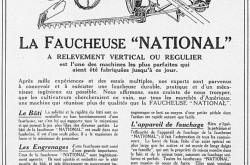
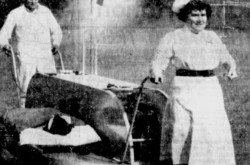
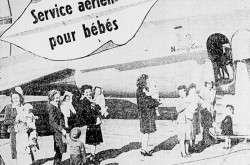
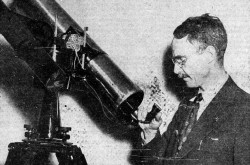


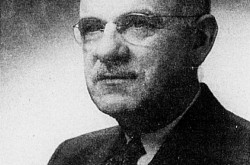
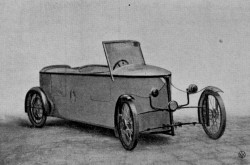

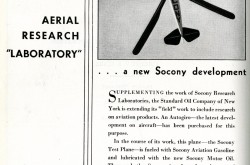
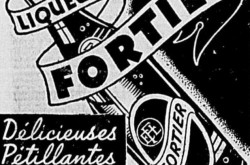
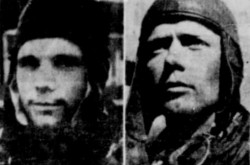
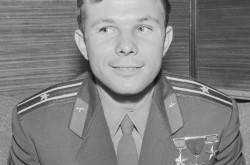
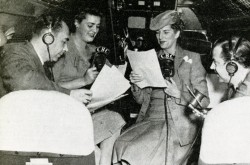
![Peter Müller at the controls [sic] of the Pedroplan, Berlin, Germany, March 1931. Anon., “Cologne contre Marseille – Le mystère du ‘Pédroplan.’ [sic]” Les Ailes, 2 April 1931, 14.](/sites/default/files/styles/thumbnail_7/public/2021-04/Les%20Ailes%202%20avril%201931%20version%20big.jpg?h=eafd0ed4&itok=WnBZ5gMf)
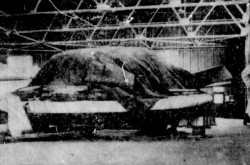
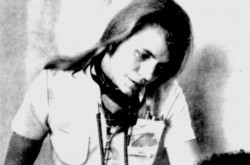
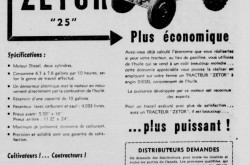
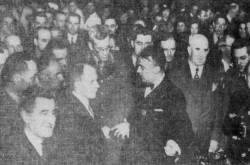



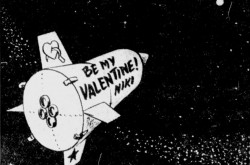

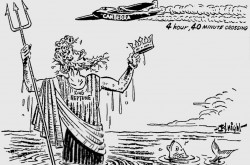

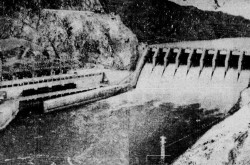
![One of the first de Havilland Canada Chipmunk imported to the United Kingdom. Anon., “De Havilland [Canada] DHC-1 ‘Chipmunk.’” Aviation Magazine, 1 January 1951, cover.](/sites/default/files/styles/thumbnail_7/public/2021-01/Aviation%20magazine%201er%20janvier%201951%20version%202.jpg?h=2f876e0f&itok=DM4JHe5C)

